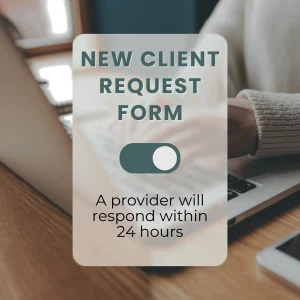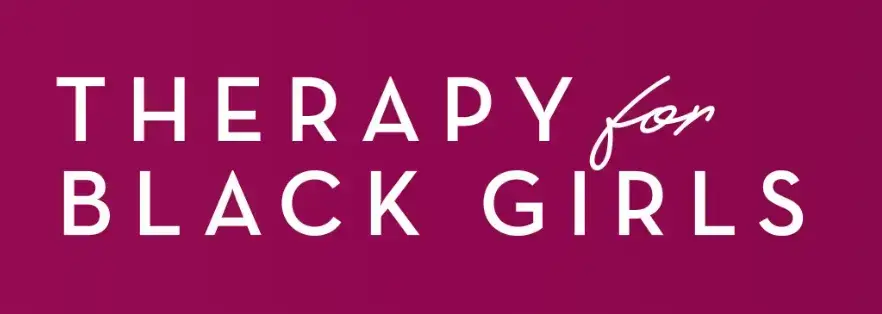
Understanding & Overcoming Social Anxiety in Adulthood
Social anxiety is more than just shyness; it’s a pervasive condition that can significantly impact an adult’s life, affecting their interactions, work, and overall well-being. In this comprehensive guide, we delve into understanding social anxiety, identifying its symptoms, uncovering its causes, and exploring effective strategies to overcome it.
Recognizing the Signs of Social Anxiety
Physical Symptoms: The Body’s Response
- Rapid Heartbeat: A common reaction during social interactions.
- Muscle Tension: Noticeable discomfort and stiffness.
- Blushing and Sweating: Involuntary responses to social situations.
- Trembling: A physical manifestation of nervousness.
Cognitive Symptoms: The Role of Thought Distortions
- Negative Self-Talk: A pattern of critical and pessimistic thoughts.
- Fear of Judgment: Worrying about others’ perceptions.
- Avoidance: Steering clear of social situations to prevent discomfort.
- Overthinking: Ruminating on past interactions and potential future scenarios.
The Root of Social Anxiety
Social anxiety can stem from a variety of sources, including genetic predispositions, childhood experiences, and environmental factors. Common triggers include public speaking, meeting new people, and being the center of attention.
Coping Strategies: Overcoming Social Anxiety as an Adult
EMBRACE MINDFULNESS
Practicing mindfulness can help in staying anchored in the present moment, reducing the impact of negative thoughts.
PRACTICE RELAXATION TECHNIQUES
Incorporate relaxation techniques such as deep breathing, meditation, and progressive muscle relaxation into your daily routine.
GRADUAL EXPOSURE
Start by gradually exposing yourself to social situations, beginning with less intimidating interactions and progressively moving to more challenging ones.
EDUCATE YOURSELF
Learn as much as you can about social anxiety to demystify the condition and empower yourself.
SET REALISTIC GOALS
Set achievable social interaction goals and celebrate your progress.
SEEK SUPPORT
Join support groups or seek out friends and family who understand and support your journey.
FOCUS ON WHAT YOU CAN CONTROL
Concentrate on aspects you can control, such as your response to anxiety, rather than external factors.
PRACTICE SOCIAL SKILLS
Engage in activities that help in building social skills, such as joining clubs or attending workshops.
CHALLENGE NEGATIVE THOUGHTS
Learn to identify and challenge irrational fears and beliefs, replacing them with more balanced and positive thoughts.
CONSIDER PROFESSIONAL HELP
If social anxiety is significantly impacting your life, don’t hesitate to seek the help of a mental health professional.
Understanding when to seek help is crucial. If you find that social anxiety is hindering your daily functioning, relationships, or work, it may be time to consult a mental health professional.
WRAPPIN' IT UP
Overcoming social anxiety is a journey, and with the right strategies and support, it is entirely possible. Embrace the journey, celebrate your progress, and remember that you are not alone.
Ready to start Therapy?
📲 Call
💬 Text
💌 Email
📝 Request a Discovery Call

FAQ's About Therapy in New Jersey
How do I get started as a new client?
New Clients can reach out to us directly via call, text or email here:
Or, you can complete a new client form and we’ll reach out to you within 24 hours here:
What are your specialties?
Our therapists have dedicated their clinical work to specific niche areas. Check out our therapy service page here to learn about our areas of expertise
What type of therapy do you offer?
We offer traditional and non-traditional therapy
Traditional therapy, such as talk therapy incudes:
- Individual therapy
- Couples Counseling
- Family Therapy
- Cognitive Behavioral Therapy
- Emotion-Focused Therapy
Do you offer Ketamine Therapy?
Yes! Ketamine has shown promise in treating various mental health conditions, including PTSD, Anxiety, Depression, Phobias and OCD. As Ketamine therapy providers, we offer this service to help clients break cycles of thinking traps that lead to compulsive behaviors.
Is Online Therapy As Effective As In-Person Therapy?
Online therapy is essentially face-to-face counseling, just conducted remotely. Studies show that teletherapy is as effective as traditional counseling. Professional organizations and state governments recognize its benefits and have set regulations for it. However, like any therapy, its success in achieving your goals isn’t guaranteed. It’s important to discuss with your therapist whether teletherapy is working for you.
What age groups do you serve?
Currently, we work with New Jersey clients ages 10+
Do you offer traditional talk therapy?
of course! though we have some unconventional therapy approaches, we are rooted in evidenced based practices. Talk therapy is a major player in the therapy room! See What we Treat and Integrative Services for more information
What Geographic Areas Are Served?
Currently, we serve clients in New Jersey and are expanding to other states as telehealth laws evolve. While telehealth offers the convenience of attending sessions from anywhere, state laws require clients to be in-state during their session.
Does my insurance cover my visits?
We provide”Courtesy Billing” for clients who are using the Out-of-network insurance benefits.
Our Insurance Page shares a small blurb about Why We Left Insurance Panels
Can I Change Therapists If I'm Not Happy?
Yes, you can switch therapists to another provider within the practice, or we can provide you a referral if preferred. We want to ensure that your time and effort are well spent, and that you are getting the relief you need, that’s why we work collaboratively with each other in the practice, as well as outside therapists who we know and trust.
What is your cancellation policy?
We ask that clients provide at least 24 hours notice in the event that they need to cancel to avoid the 50% cancellation fee. we understand that life happens and do our best to be flexible & reschedule.
How Do I Know If Therapy Is Helping?
You should feel like you’re making progress. Signs it’s working include:
Feeling comfortable talking to your therapist
Your therapist respects boundaries
You’re moving towards your goals
You feel listened to
You’re doing better in life
Your self-esteem is getting better
Is Online Therapy Easy to Use for Non-Tech-Savvy People?
Yes, it’s pretty simple to access sessions. You’ll need basic internet skills, such as opening and visiting the patient link sent to you via email. It’s similar to video chatting like Facetime or Zoom. We can also walk you through it on the phone the first time to ensure a strong connection
What Questions Should I Ask My New Therapist?
Feel free to ask anything. Some good questions are:
- How often will we meet?
- What do you specialize in?
- What experience do you have with my issue?
- What outcomes can I expect?
- How will I know I’m progressing?
- How long do you usually work with clients?
- How will we set my treatment goals?
How Should I Prepare for My First Session?
Showing up is all that you need to do! But if you really want to get the most out of session, it could help to take some time to think about what you want from therapy. It helps to write down your goals, questions you have or things that you feel are important to share.
What is the difference between associate therapists & fully licensed therapists?
Our Qualifications:
Our founder, Rebecca Sidoti, is a highly qualified, state-licensed therapist and supervisor with extensive training in anxiety related disorders and innovative treatment such as Ketamine Therapy. Mind by Design Counseling adheres to standards set by the our governing counseling boards.
To see each providers credentials, training and licenses, visit our “Meet the Therapists” Page to learn more.
- LAC/LSW are therapists who may practice clinical work under the supervision of a fully licensed therapist.
- LPC/LCSW are therapists who have completed the necessary clinical hours post-graduation under supervision and can practice clinical work independently.
Is Virtual Counseling Suitable for Everyone?
Online therapy might not be as effective for individuals with chronic suicidal thoughts, severe trauma, significant mental health history, or those recently in intensive care. Such cases often benefit more from traditional, in-person counseling. We’ll help you decide if our online services are right for you during your intake and evaluation.
What Equipment is Needed for Online Therapy?
To join a session, log in using the credentials we provide. No downloads are needed. Our platform, compatible with both individual and group sessions, requires:
A computer or mobile device with a webcam and internet access.
We’ll help you test your setup before your first appointment to ensure a reliable connection. iOS users should use the Safari browser for mobile and tablet sessions.
What Questions Will Therapists Ask Me?
It depends on your goals. Expect questions about your thoughts, feelings, relationships, work, school, and health. They’ll ask to understand your therapy goals.
How Do You Keep Client Information Secure?
Security and Confidentiality of Sessions:
Your privacy is crucial to us. We use TherapyNotes, a HIPAA-compliant platform, ensuring secure and confidential teletherapy sessions. This platform’s security features include encrypted video connections, secure data transfers, and encrypted databases, ensuring your information is safe at all times.
What is VRT used for?
we use VRT to support Exposure Therapy, a long standing traditional therapy modality to treat phobias, anxiety and stress. we send a headset directly to your home so you can access VRT from anywhere.
VRT not only helps with exposure therapy for phobias, but is great for ADHD, mindfulness, PTSD and social anxiety.











